Kenneth Atchity's Blog, page 181
August 8, 2014
HarperCollins Explores Ebook Bundling Avenues

HarperCollins and Ingram have teamed up with BookShout, a direct-to-consumer e-book platform, to set up a bundling program that lets independent bookstores offer customers physical and digital editions of a book. Eleven indie stores around the country are participating in the new program.
The program allows consumers to buy a physical copy of a book and for small fee, receive a digital edition via the BookShout platform. Founded by Jason Illian, BookShout is a direct-to-consumer e-book platform specializing in bulk e-book sales, digital book donations and e-giftcards.
Among the 11 indie bookstores participating in the program are Village Books in Bellingham, Wa., Politics and Prose in Washington D.C., Book People in Austin, Texas, and Books and Books in Miami, Fla. All the stores will feature displays highlighting the program.
When a customer buys a physical copy of one of the titles included in the bundling program, they can pay a small fee, get a BookShout code that lets them download a digital edition. Among the initial titles to be offered in the program are Richard Ford's Canada, Jess Walter's Beautiful Ruins, and Jacqueline Winspear's The Care and Management of Lies.
Chantal Restivo-Alessi, chief digital officer at HarperCollins, said all parties will be looking at data and feedback with the expectation of expanding the program in the near future. “This is a good first step in getting our bestselling content into reader's hands in a way that increases choices for them. We are happy to support our independent retail partners in putting forth a digital component to their customers.”
"It's a pleasure to craft these types of innovative services,” said John Ingram, chairman and CEO of Ingram Content Group. "We know that all of our publishing and retail partners are looking for new solutions.”

Published on August 08, 2014 00:00
August 6, 2014
S.D. Hines' Ariadne: A Tale of the Minotaur Reviewed by wb32Reads



Three thousand years before The Hunger Games, a conquered nation was forced to send their finest youths to fight and die, facing an invulnerable creature they had no chance of defeating.
ARIADNE: A Tale of the Minotaur--one of Hines' Heroines of Classical Greece series--is a contemporary retelling of the classic tale of Theseus and the Minotaur, a story with more twists and turns than even the Labyrinth holds.
Prophesied in lost Atlantis, the Grand Conjunction is rapidly approaching, the day when a unique astrological alignment makes all things possible. But more is at stake than the fate of young Theseus, prince of Athens, and his fellow Athenian tributes. This single day will decide the destiny of nations, a vanished people's resurrection--and give birth to a god.
It is also the story of Daedalus and Icarus, of an immortal yearning for love, and the greatest and basest that humanity offers. A power will soon be released that will destroy the world unless it is tamed by the newborn god who is born of a man and monster. But who is the man, and who is the monster?
The secret lies not only in the Labyrinth, but IS the Labyrinth.
And the only person who can save two worlds and tame the monster is the weakest and meekest of all: Ariadne, the beautiful daughter of Minos, king of Crete.
My two-bits:
Great way to get into Greek mythology.
I was not too familiar with the Ariadne story other than her part with helping Theseus in the Labyrinth. This story gave some good background and character development of Ariadne who is a heroine, indeed.
I also liked learning about the Minotaur and watching his character and person evolve throughout the story. Fascinating.
And, this story's perspective of Theseus makes a more well-rounded version - one who is not as golden as portrayed in other retellings.
Reposted from wb32Reads

Published on August 06, 2014 00:00
August 4, 2014
" An Enthralling Entertaining Credible Futuristic Tale" ... eHuman Dawn


 An Enthralling Entertaining Credible Futuristic Tale That is Well-Written, Believable and Fast-Paced! Enjoy This Awesome Novel! By Tom McGee "Tom"
An Enthralling Entertaining Credible Futuristic Tale That is Well-Written, Believable and Fast-Paced! Enjoy This Awesome Novel! By Tom McGee "Tom"I purchased Nicole Sallak Anderson’s eHuman Dawn based on the review of an Amazon Vine Program reviewer and am glad I did. While it is not a genre that I am normally attracted to, I thoroughly enjoyed this entertaining futuristic tale written by a computer science graduate.
This gripping tale is set in the year 2242 in an age where technology, world government and life as we know it on an entirely different level. Some two hundred years earlier, mankind invented a method of capturing the essence of humanity and uploaded individuals into nearly invincible esthetically perfect manmade bodies making individuals nearly immortal. The great shift has taken place and people no longer have the need to eat and drink. Disease and physical ailment is a thing of the past.
The catch is that once uploaded the individuals memories and identity of their past lives is erased and they need to be recharged every other day on a global network that monitors thoughts during the process.
As the story unfolds, we learn that some, including a dozen or so world leaders have retained their identities with one ruthless sociopathic dictator controlling all of humanity through his secure worldwide power grid.
Dawn, the first ehuman has formed a growing resistance group over the ages that has found a way to avoid the power grid and is bent on freeing mankind from the dictators influence.
This captivating 266-page tale is an entertaining quick and believable story that incorporates human greed, motivation and manipulation in this thrilling adventure.
If you are looking for an imaginative well-written tale that will entertain you at the onset through the last page, THIS IS IT!
Enjoy!

Published on August 04, 2014 00:00
August 1, 2014
Book Keeping Reviews Phantom Limb: A Daniel Rinaldi Mystery by Dennis Palumbo
 Dennis Palumbo now has four thrillers (as of September 1, 2014) in the Daniel Rinaldi mysteries set in Pittsburgh, where he grew up. That is one of the features that drew me to the series since I lived there happily for a number of years. It isn't necessary to be familiar with Pittsburgh; but if you are, it's fun to recognize the locations the author describes.
Dennis Palumbo now has four thrillers (as of September 1, 2014) in the Daniel Rinaldi mysteries set in Pittsburgh, where he grew up. That is one of the features that drew me to the series since I lived there happily for a number of years. It isn't necessary to be familiar with Pittsburgh; but if you are, it's fun to recognize the locations the author describes.Daniel Rinaldi is a psychologist who reluctantly gets called in by the police from time to time, to help with difficult cases needing his skills. His specialty is traumatized victims of crime including sexual assault. But never fear. Since author Dennis Palumbo is also a psychologist in real life, he never goes too far with the violence or the sex. The focus is on one heck of a good story.
In Phantom Limb, things start off with a bang. Set in Pittsburgh, this roller coaster ride of a thriller is a worthy fourth entry into the series. Hollywood Starlet Lisa Harland now married to a very wealthy older man is kidnapped as she leaves her session with Rinaldi, who of course gets knocked out. Why does the kidnapper insist on Dr. Rinaldi being the one to make the ransom drop?
I tend not to tell too much of the story since part of the fun of thrillers is the surprise and unexpected plot twists. And Palumbo precisely lays out the various story lines, carefully pulling them together at the end. Except, of course, those things that MIGHT be part of the next book.
If you start with the first book in the series, you will feel like the reoccurring secondary characters are old friends. Palumbo has filled his stories with people that are memorable, quirky, cranky, and fun.
I read lots of thrillers and have to say that Dennis Palumbo is one of the best writers in the genre and he gets better with every new entry in this series.
Bottom Line: If you read and enjoy thrillers, add Dennis Palumbo to your list of authors to follow. You won't be disappointed! It's not necessary, but I would still suggest reading the other three books first. HIGHLY RECOMMENDED.
Title: Phantom Limb : A Daniel Rinaldi Mystery #4 Author: Dennis PalumboGenre: Thriller, MysteryPublisher: Poisoned Pen PressNo. of Pages: 250 pagesCopyright: September 1, 2014ISBN: 1464202540Rating: 4 out of 5 starsSource: NetGalley
Dennis Palumbo is a writer and licensed psychotherapist. His first Daniel Rinaldi mystery, Mirror Image was published in 2010, followed by Fever Dream in 2011, and Night Terrors in 2013. He was formerly a Hollywood screenwriter and his credits include the feature film My Favorite Year . He also wrote for Welcome Back, Kotter .
Reposted From Book Keeping

Published on August 01, 2014 00:00
July 30, 2014
Good Reads - Four Stars for Nicole Sallak Anderson's eHuman Dawn
 I have always wondered what a world would be like where a person wouldn't die, free of illness and other problems and this book gave a good idea of what that would look like. I really enjoyed the book, and it had me turning page after page. The plot and characters where really good. I would definitely recommend this book to all those science fiction lovers.
I have always wondered what a world would be like where a person wouldn't die, free of illness and other problems and this book gave a good idea of what that would look like. I really enjoyed the book, and it had me turning page after page. The plot and characters where really good. I would definitely recommend this book to all those science fiction lovers.~ Maria Rios's Good Reads Review


Published on July 30, 2014 00:00
July 28, 2014
Congratulations to Story Merchant Client Robin Grant - Finalist in Readers' Favorite Annual International Award Contest!
Robin Grant's Summer's Winter is a finalist in TWO categories in the Readers' Favorite contest -- Fiction-Inspirational and Romance-Suspense.
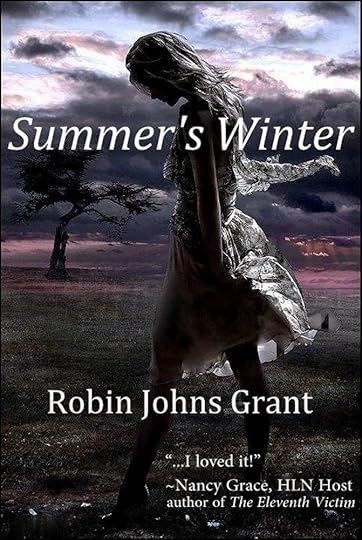

Readers Favorite



Readers Favorite

Published on July 28, 2014 00:00
July 26, 2014
WhatTheySaid Interview with mystery writer Dennis Palumbo
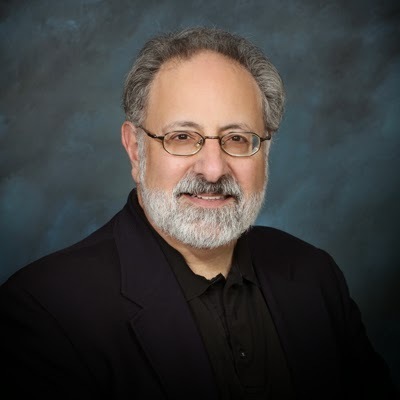
Jacqui Cooper enjoyed talking with Dennis Palumbo author of Night Terrors a Daniel Rinaldi mystery novel published by Poisoned Pen Press it was intriguing to gain some insight into how writers write from this master storyteller. This is the third in the the Daniel Rinaldi series and is receiving great reviews.
"Palumbo, an award-winning Hollywood screenwriter turned psychotherapist, uses all his professional experience to craft short, action- and tension-filled chapters and insightful sketches of people traumatized by violence." --- BookList
“In Palumbo’s riveting third Daniel Rinaldi mystery (after 2011’s FEVER DREAM), answers prove elusive as the murders begin to pile up. Palumbo ratchets up the stakes in this psychological thriller, but maintains the emotional complexity…” --- Publisher’s Weekly
Some of the questions were my own, some provided by fans of the Poison Pen Press Facebook page, the answers were all Dennis's own. Now you too can listen to what Dennis has to say, you can comment on the Facebook page here or search for the page from your profile https://www.facebook.com/PPPress
If you want to be kept up-to-date with new releases in the mystery novel genre you can subscribe to the Poisoned Pen Press newsletter, after all you wouldn't want to miss another Daniel Rinaldi mystery now would you?
Happy listening and please tell us what you think and what questions you've always wanted to ask a writer.
Reposted from WhatTheySaid

Published on July 26, 2014 21:37
July 24, 2014
The Queen of Urban Erotica Presents B4 the G-Spot: The Legend of Granite McKay
[image error] Like Tweet Pin +1 in
 The Queen of Urban Erotica Presents
The Queen of Urban Erotica Presents
B4 the G-Spot: The Legend of Granite McKay Prequel to G-SPOT, the #1 Bestselling Urban Erotic TaleSign up for Noire's Email List and get exclusive news and releases first!
Prequel to G-SPOT, the #1 Bestselling Urban Erotic TaleSign up for Noire's Email List and get exclusive news and releases first!
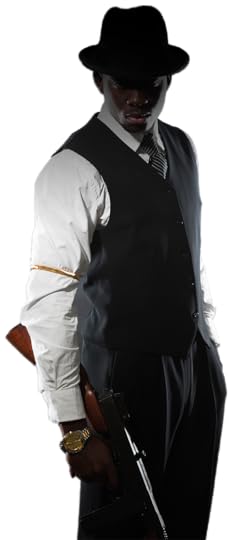
"I didn't come to Harlem riding shotgun...I came packin one!"GRANITE "G" MCKAYIt's not a series it's a SAGA!THE PREQUEL OF THE YEAR IS HERE! B4 the G-Spot: The Legend of Granite McKay Meet the Man and the Myth,The Lover and the Legend,The Kingpin and the Killer,The Gangsta who put the G in G-Spot,The TRUE King of Harlem... Let's Go Back B4 the G-Spot to: The Legend of GRANITE MCKAY! www.TheGSpotSaga.com WARNING!This here ain’t no romance it’s an urban erotic taleThese gutter plots I drop will have you biting off your nails!A menace has arrived, a terror Harlem’s never seenHe started from the bottom and turned a dollar into a dream!Before the ballin and the stuntin and the sexin and the flexin,Brutal vision and ambition is how this gangsta manifested!So let’s stand up and salute the ruthless boss who paved the way,Let’s go back B4 the G-Spot to:
The Legend of GRANITE McKAY!
WARNING!This here ain’t no romance it’s an urban erotic taleThese gutter plots I drop will have you biting off your nails!A menace has arrived, a terror Harlem’s never seenHe started from the bottom and turned a dollar into a dream!Before the ballin and the stuntin and the sexin and the flexin,Brutal vision and ambition is how this gangsta manifested!So let’s stand up and salute the ruthless boss who paved the way,Let’s go back B4 the G-Spot to:
The Legend of GRANITE McKAY!
 In the beginning…Have you ever played Russian roulette with the Devil? Did you post up at the front end of his burner and stare that fuckin bullet down? Did you roll the dice with your life, ready to pay the cost no matter how high it might be? And when that trigger popped, did you catch that bullet between your teeth and snap that shit in half?Check me out. I didn’t come to Harlem riding shotgun. I came packin one!
In the beginning…Have you ever played Russian roulette with the Devil? Did you post up at the front end of his burner and stare that fuckin bullet down? Did you roll the dice with your life, ready to pay the cost no matter how high it might be? And when that trigger popped, did you catch that bullet between your teeth and snap that shit in half?Check me out. I didn’t come to Harlem riding shotgun. I came packin one!
And I wasn’t gonna stop spraying until I had every block in the city on lock. Believe me, failure wasn’t an option. Weaknesses, I had none. It was the gun or the grave for this nigga right here. I had my guts and my fists, and I was either gonna do…or I was gonna die! B4 the G-Spot : The Legend of Granite McKay Now available in Kindle , Nook , and Smashwords formats!Read an excerpt from B4 the G-Spot here! www.TheGSpotSaga.com B4 the G-Spot will also be available in paperback format soon!Be sure to get your copy from NoireStore.com.Want to become an Urban Ambassador for Noire?
Join Noire Black's Fanpage on Facebook
And we'll tell you how to get on our Street Elite team!
 Juicy-Mo T-ShirtAnnouncing Noire's Street Elite Urban Tees and MORE...
Juicy-Mo clothing, Noire t-shirts, hats, and handbags
Become one of Noire's Urban Ambassadors for a chance to win free Noire gear!
Juicy-Mo T-ShirtAnnouncing Noire's Street Elite Urban Tees and MORE...
Juicy-Mo clothing, Noire t-shirts, hats, and handbags
Become one of Noire's Urban Ambassadors for a chance to win free Noire gear!
#Team Juicy-Mo! Noire Clothing
Noire Clothing
 Noire Music Group and Reem Raw RadioGet to know the artist behind the lyrics in Noire's Urban Erotic Tales!First we brought you the SoundTrack to
Noire Music Group and Reem Raw RadioGet to know the artist behind the lyrics in Noire's Urban Erotic Tales!First we brought you the SoundTrack to
THONG ON FIRE by Reem RawNow get to know Reem Raw up close and personal! Reem Raw's new album is now available on Amazon.com ! Reem Raw Radio is now live on Noire's Youtube Channel ! Look out for upcoming announcements!Check out how Reem Raw has parlayed his lyrical genius from music to acting and now expanded his penmanship as an author!Read an excerpt from his collab with Noire on their upcoming novel
A NEW YORK STATE OF MINE! at the end of B4 the G-Spot!

 Flirty Dirties by NOIRESome like it HARD and some like it HOT!Enjoy your favorite "Flirty Dirty" by Noire and be sure to stay tuned for the release of
RED HOT LIAR
on December 30th!
Flirty Dirties by NOIRESome like it HARD and some like it HOT!Enjoy your favorite "Flirty Dirty" by Noire and be sure to stay tuned for the release of
RED HOT LIAR
on December 30th!
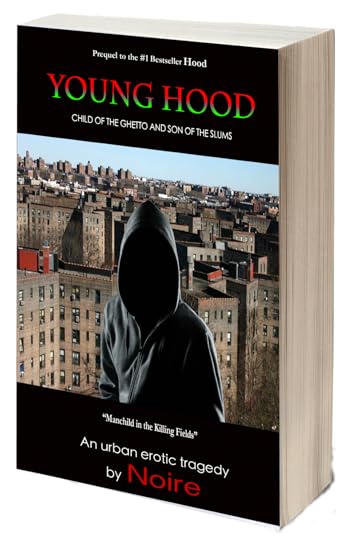 COMING SOON:YOUNG HOOD: Manchild in the Killing Fields An Urban Erotic Tragedy
COMING SOON:YOUNG HOOD: Manchild in the Killing Fields An Urban Erotic Tragedy
 COMING SOON:G-Spot Reloaded: THAT BITCH JUICY! A Flirty Dirty Quickie
COMING SOON:G-Spot Reloaded: THAT BITCH JUICY! A Flirty Dirty Quickie
 Urban Erotic Noire Publications
Urban Erotic Noire Publications






 ©2014 UEN | 244 5th Avenue Suite 2301 New York, NY 10001 Web Version Subscribe Forward Unsubscribe
©2014 UEN | 244 5th Avenue Suite 2301 New York, NY 10001 Web Version Subscribe Forward Unsubscribe
Powered by Mad Mimi ®

 The Queen of Urban Erotica Presents
The Queen of Urban Erotica Presents B4 the G-Spot: The Legend of Granite McKay
 Prequel to G-SPOT, the #1 Bestselling Urban Erotic TaleSign up for Noire's Email List and get exclusive news and releases first!
Prequel to G-SPOT, the #1 Bestselling Urban Erotic TaleSign up for Noire's Email List and get exclusive news and releases first!

"I didn't come to Harlem riding shotgun...I came packin one!"GRANITE "G" MCKAYIt's not a series it's a SAGA!THE PREQUEL OF THE YEAR IS HERE! B4 the G-Spot: The Legend of Granite McKay Meet the Man and the Myth,The Lover and the Legend,The Kingpin and the Killer,The Gangsta who put the G in G-Spot,The TRUE King of Harlem... Let's Go Back B4 the G-Spot to: The Legend of GRANITE MCKAY! www.TheGSpotSaga.com
 WARNING!This here ain’t no romance it’s an urban erotic taleThese gutter plots I drop will have you biting off your nails!A menace has arrived, a terror Harlem’s never seenHe started from the bottom and turned a dollar into a dream!Before the ballin and the stuntin and the sexin and the flexin,Brutal vision and ambition is how this gangsta manifested!So let’s stand up and salute the ruthless boss who paved the way,Let’s go back B4 the G-Spot to:
The Legend of GRANITE McKAY!
WARNING!This here ain’t no romance it’s an urban erotic taleThese gutter plots I drop will have you biting off your nails!A menace has arrived, a terror Harlem’s never seenHe started from the bottom and turned a dollar into a dream!Before the ballin and the stuntin and the sexin and the flexin,Brutal vision and ambition is how this gangsta manifested!So let’s stand up and salute the ruthless boss who paved the way,Let’s go back B4 the G-Spot to:
The Legend of GRANITE McKAY!
 In the beginning…Have you ever played Russian roulette with the Devil? Did you post up at the front end of his burner and stare that fuckin bullet down? Did you roll the dice with your life, ready to pay the cost no matter how high it might be? And when that trigger popped, did you catch that bullet between your teeth and snap that shit in half?Check me out. I didn’t come to Harlem riding shotgun. I came packin one!
In the beginning…Have you ever played Russian roulette with the Devil? Did you post up at the front end of his burner and stare that fuckin bullet down? Did you roll the dice with your life, ready to pay the cost no matter how high it might be? And when that trigger popped, did you catch that bullet between your teeth and snap that shit in half?Check me out. I didn’t come to Harlem riding shotgun. I came packin one! And I wasn’t gonna stop spraying until I had every block in the city on lock. Believe me, failure wasn’t an option. Weaknesses, I had none. It was the gun or the grave for this nigga right here. I had my guts and my fists, and I was either gonna do…or I was gonna die! B4 the G-Spot : The Legend of Granite McKay Now available in Kindle , Nook , and Smashwords formats!Read an excerpt from B4 the G-Spot here! www.TheGSpotSaga.com B4 the G-Spot will also be available in paperback format soon!Be sure to get your copy from NoireStore.com.Want to become an Urban Ambassador for Noire?
Join Noire Black's Fanpage on Facebook
And we'll tell you how to get on our Street Elite team!

 Juicy-Mo T-ShirtAnnouncing Noire's Street Elite Urban Tees and MORE...
Juicy-Mo clothing, Noire t-shirts, hats, and handbags
Become one of Noire's Urban Ambassadors for a chance to win free Noire gear!
Juicy-Mo T-ShirtAnnouncing Noire's Street Elite Urban Tees and MORE...
Juicy-Mo clothing, Noire t-shirts, hats, and handbags
Become one of Noire's Urban Ambassadors for a chance to win free Noire gear! #Team Juicy-Mo!
 Noire Clothing
Noire Clothing
 Noire Music Group and Reem Raw RadioGet to know the artist behind the lyrics in Noire's Urban Erotic Tales!First we brought you the SoundTrack to
Noire Music Group and Reem Raw RadioGet to know the artist behind the lyrics in Noire's Urban Erotic Tales!First we brought you the SoundTrack to THONG ON FIRE by Reem RawNow get to know Reem Raw up close and personal! Reem Raw's new album is now available on Amazon.com ! Reem Raw Radio is now live on Noire's Youtube Channel ! Look out for upcoming announcements!Check out how Reem Raw has parlayed his lyrical genius from music to acting and now expanded his penmanship as an author!Read an excerpt from his collab with Noire on their upcoming novel
A NEW YORK STATE OF MINE! at the end of B4 the G-Spot!


 Flirty Dirties by NOIRESome like it HARD and some like it HOT!Enjoy your favorite "Flirty Dirty" by Noire and be sure to stay tuned for the release of
RED HOT LIAR
on December 30th!
Flirty Dirties by NOIRESome like it HARD and some like it HOT!Enjoy your favorite "Flirty Dirty" by Noire and be sure to stay tuned for the release of
RED HOT LIAR
on December 30th!
 COMING SOON:YOUNG HOOD: Manchild in the Killing Fields An Urban Erotic Tragedy
COMING SOON:YOUNG HOOD: Manchild in the Killing Fields An Urban Erotic Tragedy
 COMING SOON:G-Spot Reloaded: THAT BITCH JUICY! A Flirty Dirty Quickie
COMING SOON:G-Spot Reloaded: THAT BITCH JUICY! A Flirty Dirty Quickie
 Urban Erotic Noire Publications
Urban Erotic Noire Publications






 ©2014 UEN | 244 5th Avenue Suite 2301 New York, NY 10001 Web Version Subscribe Forward Unsubscribe
©2014 UEN | 244 5th Avenue Suite 2301 New York, NY 10001 Web Version Subscribe Forward Unsubscribe Powered by Mad Mimi ®

Published on July 24, 2014 11:32
July 23, 2014
“Last Plane out of Saigon” Lands Great Reviews

Richard Pena was invited to join the cast of Good Day Valley, a part of KFXV-LD channel 67, which is a Fox-affiliated station in McAllen, Texas, owned by Entravision Communications! In an interview that aired Wednesday, July 16, Mr. Pena told the story of how the book, Last Plane Out of Saigon, came to be and the focus on helping to form a national strategy for our veterans! To see the full interview click HERE!

Published on July 23, 2014 00:00
July 21, 2014
Guest Post: Enough: How Not to Over-Write by Dennis Palumbo
Hollywood on the Couch
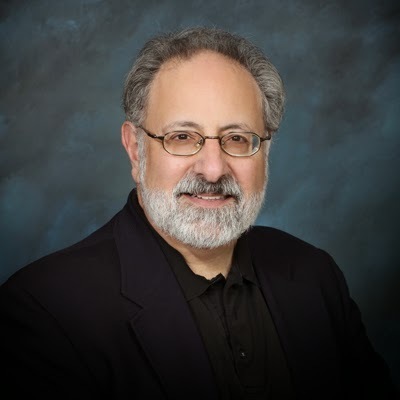 The inside scoop on Tinseltown, USA.
The inside scoop on Tinseltown, USA.
How to write enough (but just enough) to engage the reader
There’s a great moment in the classic film Key Largo, when gangster Edward G. Robinson is asked—given the extent of his wealth and power—what he could possibly still want. “More,” he famously answers.
More. Kind of the American credo in a nutshell, which isn’t as damning as it sounds. The word "more," when appearing before such other words as individual rights, artistic freedom and access to information, stands as a proud element of the Western imperative. On the downside, more has also fueled global climate change, the growing gulf between people’s incomes, and an almost obscene preoccupation with material things. When it comes to life in general, "more" is definitely a two-edged sword.
I’d argue that the same holds true with the craft of writing. More is not always better. In a screenplay, for example, an overwritten patch of description can bring the reader to a screeching halt, draining the narrative of pace and forward momentum.
Find a Therapist
Or take monologues. Unless used sparingly, and with a definite intent, a monologue in a film or TV script can often make the character just seem wordy. (Exceptions abound, of course. Such powerhouse writers as Paddy Chayefsky, Rod Serling and Quentin Tarantino come to mind. And even they occasionally fell prey to mere self-indulgence.)
In a short story or novel, endless words of description—whether of place, a character’s physical appearance, or in the service of the author’s thematic or philosophical interests—can slow the narrative to a crawl.
Overwriting, it’s safe to say, is by general agreement a bad thing. Then why do so many writers do it?
Let’s be clear: I’m not talking about the normal, expected overwriting that characterizes your first draft. During those explosive, flowing, unfolding bursts of creativity, your inner editor is—you hope—asleep at the switch until you get the myriad ideas, incidents, breath-taking narrative leaps and beside-the-point stretches of dialogue down. The first draft is when you do get to describe a character as “grungy, foul-smelling, disheveled, knuckle-dragging and poorly-dressed.” You can even add, “We are repulsed. Taken aback. Aghast. The camera’s eye wants to turn away.” The more socially-conscious might note: “A grim reminder of the dismantling of the welfare system’s safety net in the past thirty years.”
No matter. All that hooey gets edited out in later drafts. Or should. Yet, for some writers, it feels like tearing a piece of their skin away to delete any of it. Why? Is it because they think every word is golden? Hardly. In fact, it’s the reverse.
In my experience with the writer patients in my therapy practice, those who tend to overwrite are usually struggling, whether they know it or not, with issues of self-trust. Either they don’t feel entitled to be writing in the first place and thus need a cornucopia of words to try to mask this, or else they feel unsure of their talent and craft. If the latter is the case, these writers try to convince the reader of the legitimacy of the idea or emotion or scene being depicted by packing it with adjectives, metaphors and authorial asides. Anything—and everything—to make sure the reader gets it.
On the other hand, writers who trust their skills and/or feel entitled to be writing at all have faith in the narrative and emotional power of the single appropriate phrase, the short though vivid description, the seemingly simple line of dialogue freighted with meaningful subtext.
The ancient poet Gensei wrote: “The point of life is to know what’s enough.” That’s the point of writing as well. Not only does self-trust enable writers to shape their work into its most effective, compelling form, but such writing also has enough “air” in it to allow readers to bring their own experiences to what they’re reading (or seeing onscreen), thus increasing the work’s relevancy.
In other words, good writing is what is evoked in the spaces between the written lines. Good writers have enough trust in themselves to know that there’s something there, and that they’ve written enough (but just enough) to convey the thought that sparks the echoing thought in the reader’s mind. They’ve portrayed enough of the character’s emotional life to resonate with similar aspects of the reader’s inner world. A single descriptive word, such as barren or choked or remorseless, can bring with it a wealth of associations to thoughts, feelings and images waiting to be stirred into life in the reader’s imagination.
How do writers develop self-trust? The way we do in most other aspects of life. By doing. Writing. Risking that our readers will follow us where we’re going; that what we have to say, or what we’ve always felt, or what we openly fear or yearn for, will find a recognizable home in the reader’s heart. Self-trust, like it or not, is born of risk. As are most worthwhile things.
Ultimately, if we believe we ourselves are enough, we’ll believe that what we’re writing is enough, too.
Reposted From Hollywood on the Couch
---------------------------------------------------------------------------------------------------------------------------------------
A former Hollywood screenwriter, DENNIS PALUMBO is now a licensed psychotherapist in private practice. He’s also the author of the Daniel Rinaldi series of mysteries. For more info, please visit www.dennispalumbo.com
 The inside scoop on Tinseltown, USA.
The inside scoop on Tinseltown, USA. How to write enough (but just enough) to engage the reader
There’s a great moment in the classic film Key Largo, when gangster Edward G. Robinson is asked—given the extent of his wealth and power—what he could possibly still want. “More,” he famously answers.
More. Kind of the American credo in a nutshell, which isn’t as damning as it sounds. The word "more," when appearing before such other words as individual rights, artistic freedom and access to information, stands as a proud element of the Western imperative. On the downside, more has also fueled global climate change, the growing gulf between people’s incomes, and an almost obscene preoccupation with material things. When it comes to life in general, "more" is definitely a two-edged sword.
I’d argue that the same holds true with the craft of writing. More is not always better. In a screenplay, for example, an overwritten patch of description can bring the reader to a screeching halt, draining the narrative of pace and forward momentum.
Find a Therapist
Or take monologues. Unless used sparingly, and with a definite intent, a monologue in a film or TV script can often make the character just seem wordy. (Exceptions abound, of course. Such powerhouse writers as Paddy Chayefsky, Rod Serling and Quentin Tarantino come to mind. And even they occasionally fell prey to mere self-indulgence.)
In a short story or novel, endless words of description—whether of place, a character’s physical appearance, or in the service of the author’s thematic or philosophical interests—can slow the narrative to a crawl.
Overwriting, it’s safe to say, is by general agreement a bad thing. Then why do so many writers do it?
Let’s be clear: I’m not talking about the normal, expected overwriting that characterizes your first draft. During those explosive, flowing, unfolding bursts of creativity, your inner editor is—you hope—asleep at the switch until you get the myriad ideas, incidents, breath-taking narrative leaps and beside-the-point stretches of dialogue down. The first draft is when you do get to describe a character as “grungy, foul-smelling, disheveled, knuckle-dragging and poorly-dressed.” You can even add, “We are repulsed. Taken aback. Aghast. The camera’s eye wants to turn away.” The more socially-conscious might note: “A grim reminder of the dismantling of the welfare system’s safety net in the past thirty years.”
No matter. All that hooey gets edited out in later drafts. Or should. Yet, for some writers, it feels like tearing a piece of their skin away to delete any of it. Why? Is it because they think every word is golden? Hardly. In fact, it’s the reverse.
In my experience with the writer patients in my therapy practice, those who tend to overwrite are usually struggling, whether they know it or not, with issues of self-trust. Either they don’t feel entitled to be writing in the first place and thus need a cornucopia of words to try to mask this, or else they feel unsure of their talent and craft. If the latter is the case, these writers try to convince the reader of the legitimacy of the idea or emotion or scene being depicted by packing it with adjectives, metaphors and authorial asides. Anything—and everything—to make sure the reader gets it.
On the other hand, writers who trust their skills and/or feel entitled to be writing at all have faith in the narrative and emotional power of the single appropriate phrase, the short though vivid description, the seemingly simple line of dialogue freighted with meaningful subtext.
The ancient poet Gensei wrote: “The point of life is to know what’s enough.” That’s the point of writing as well. Not only does self-trust enable writers to shape their work into its most effective, compelling form, but such writing also has enough “air” in it to allow readers to bring their own experiences to what they’re reading (or seeing onscreen), thus increasing the work’s relevancy.
In other words, good writing is what is evoked in the spaces between the written lines. Good writers have enough trust in themselves to know that there’s something there, and that they’ve written enough (but just enough) to convey the thought that sparks the echoing thought in the reader’s mind. They’ve portrayed enough of the character’s emotional life to resonate with similar aspects of the reader’s inner world. A single descriptive word, such as barren or choked or remorseless, can bring with it a wealth of associations to thoughts, feelings and images waiting to be stirred into life in the reader’s imagination.
How do writers develop self-trust? The way we do in most other aspects of life. By doing. Writing. Risking that our readers will follow us where we’re going; that what we have to say, or what we’ve always felt, or what we openly fear or yearn for, will find a recognizable home in the reader’s heart. Self-trust, like it or not, is born of risk. As are most worthwhile things.
Ultimately, if we believe we ourselves are enough, we’ll believe that what we’re writing is enough, too.
Reposted From Hollywood on the Couch
---------------------------------------------------------------------------------------------------------------------------------------
A former Hollywood screenwriter, DENNIS PALUMBO is now a licensed psychotherapist in private practice. He’s also the author of the Daniel Rinaldi series of mysteries. For more info, please visit www.dennispalumbo.com

Published on July 21, 2014 00:00



